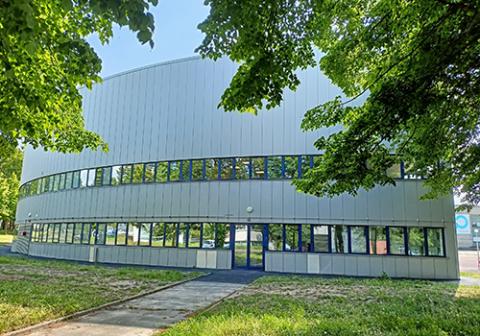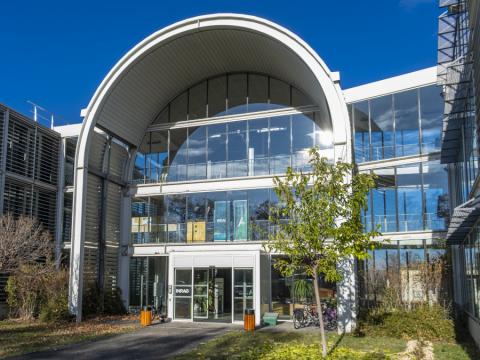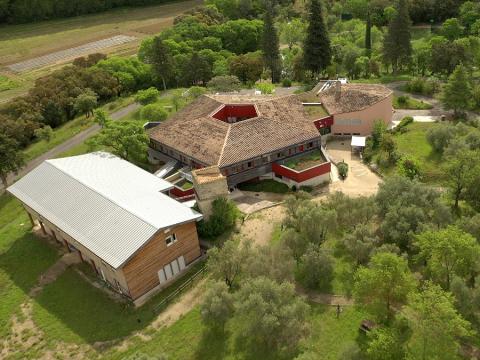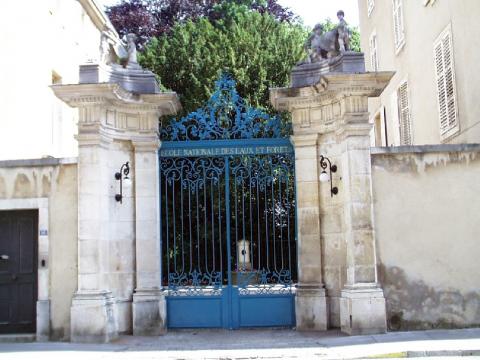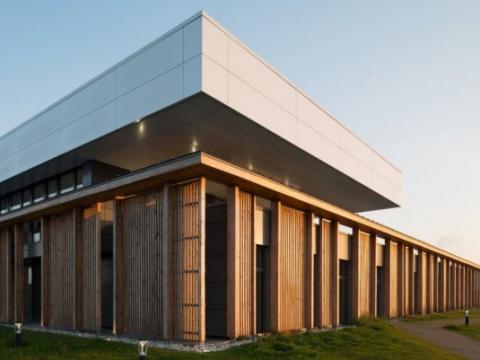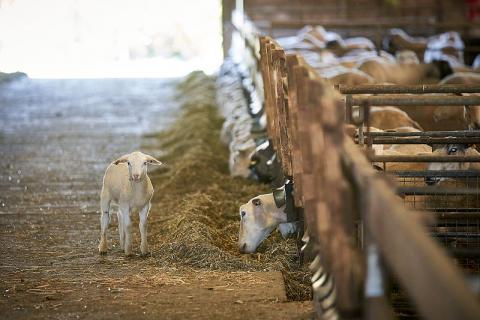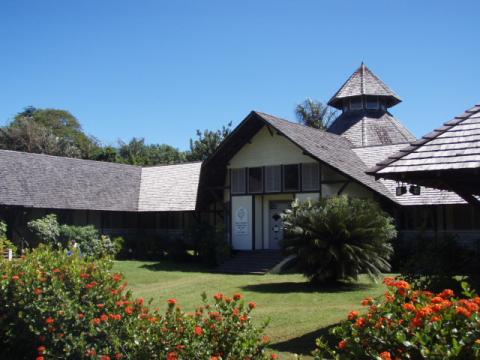
Kourou Campus – EcoFoG Joint Research Unit
February 11 2022About the Campus
The activities conducted at the AgroParisTech Kourou Campus generally overlap with those of the EcoFoG Joint Research Unit (https://www.ecofog.gf/). In addition to the educational and research activities described below, AgroParisTech manages and capitalizes on EcoFoG’s HR and IT teams and the extensive data produced by its research staff.
AgroParisTech staff is primarily involved in two of the Joint Research Unit’s areas of research:
-
Community Patterns & Assembly (PAC):
Understanding community assembly rules (plants, insects, fungi, fauna) in light of current environmental constraints and global changes;
-
Ecosystem Processes and Services (PSE):
Quantifying the consequences of global changes on ecosystem processes and ecosystem services provided by tropical forests and ecosystems derived from altered forestland uses. The campus shares historic bonds with management bodies (the National Office of Forests(ONF) and the French Office for Biodiversity (OFB)), and with the former startup from the SOLICAZ unit, which leverages knowledge acquired in soil ecology to revegetate mining lands and forest plantations.
Practical Information
-
Campus Director: Stéphane Traissac / Executive Assistant and Campus Administrative and Finance Manager: Dominique Volland
-
Address: Campus Agronomique – Avenue de France – BP316 — 97379 Kourou Cedex, French Guiana
-
Tel.: +594 329300 – Fax: +594 324302
-
Access: Across from McDonald’s, next to the Total gas station
-
Campus hours: 6 A.M. to 7 P.M.
Programs Taught on the Campus
The programs taught on the campus are overseen by Mélaine Aubry-Kientz.
- Master’s in Tropical Forest Ecology
The program strives offers a world-class education in the field of Tropical Forest ecology. The specificity of this second-year master’s program, shared between the University of Guyana, the University of the French Antilles, and AgroParisTech, is to approach forest ecology issues through tropical environments, which occupy 40% of the Earth’s surface and are home to ecosystems with extremely high levels of biodiversity.
Managing this tropical biodiversity (which even today remains largely misunderstood) and the resources associated with it constitutes one of the central challenges of the 21st century, particularly in light of the ongoing global climate crisis: The program therefore focuses on professionalizing students (preparing them for careers in tropical forest research and management), on the ecological characteristics of tropical forests, on adaptive mechanisms developed by the organisms that live in them, and on modeling these complex ecological systems.
The teaching team includes well-known specialists in each of these fields. The program’s course offerings contribute to disseminating the most recent developments in scientific knowledge, both on a theoretical level (modeling systems, ecological theories, etc.) and on an experimental one (data processing methods, measuring techniques, etc.). Customized support (choosing an internship, course correction as needed, supervised projects, etc.) offers students a high-quality environment to work in:
-
access to multimedia tools (course materials, online documentation, etc.);
-
a multifaceted scientific environment made available by the University and the partner Research and Management Institutes present in our region (INRAE, CIRAD, CNRS, IFREMER, IRD, ONF, Guiana Amazonian Park, regional natural parks, WWF, etc.);
-
weekly seminars on different themes that take advantage of visits from outside researchers, especially at the EcoFoG Joint Research Unit;
-
and, most importantly, the proximity of the phenomenon actually being studied (tropical forest ecosystems), made accessible through various permanent experimental facilities managed by teams associated with the master’s program (the Paracou and Nouragues forest sites, the network of Guyafor forest plots, etc.).
-
- Ph.D. Studies
The Joint Research Unit is affiliated with the University of Guyana’s Doctoral School No. 587 (“Diversity, Health, and Development in the Amazon”), and the University of the French Antilles’ Doctoral School No. 589 (“High-Risk Tropical Island Environments: Protection, Use, Health, and Development”).
- Tropical Rainforest Module
Launched in 1994, this module allows students to acquire general tropical experience, and more specifically, experience of tropical rainforests and Guiana. Emphasis is placed on sound training in the fields of life sciences and the environment, without overlooking social sciences as seen through relationships between people and forests.The program takes place over a month, and includes a two-week field exercise and a mini research or management project supervised by a scientist or an engineer.
It admits thirty to forty students (second-year master’s level and higher) from different backgrounds, whether from AgroParisTech or from Ph.D. programs at partner institutions. One interesting facet of the module is the number of European or tropical students who take part in it (10 to 20% of its student body). These are mainly Erasmus students enrolled in AgroParisTech Montpellier’s GEEFT program and interns (Ph.D. or postdoctoral students) being hosted for research projects.
The module is part of the GlobFor (formerly Sutrofor) and Tropimundo European master’s degree programs.
Research – Joint Research Units and Research Laboratories Present on the Campus
- EcoFoG Joint Research Unit
Unit Director:Jérôme Orivel
Directors: Stéphane Traissac and Jean-Christophe Roggy
This Joint Research Unit devoted to Guyana Forest Ecology combines resources from AgroParisTech, INRAE, Cirad, CNRS, the University of the French Antilles, and the University of Guyana.
The unit belongs to the Research Center for Amazonian Biodiversity Labex (Laboratory of Excellence).
The EcoFoG Joint Research Unit is devoted to integrating different approaches to ecology and materials science as a way of:(i) understanding relationships between biodiversity and how tropical forest ecosystems work—regardless of whether they are being exploited—as they evolve under climate and anthropogenic pressures; (ii) driving innovation in the use of forest resources in this context of high biodiversity, taking into account the difficulties associated with their use in a tropical rainforest environment.Scholarly activity at the Joint Research Unit is organized around 5 themes:
-
Plant Development and Function (DFP)
-
Community Patterns & Assembly (PAC)
-
Ecosystem Processes and Services (PSE)
-
Chemical and Molecular Evolution and Ecology (EECM)
-
Bio-Discovery, Usage, and Technologies (BUT)
-
Specific Tools and Equipment on the Site
-
Documentation Center (Carole Legrand, manager)
-
Soil Biology Laboratory
-
Wood Science Laboratory
-
Interaction Biology Laboratory
-
Ecological Genetics Laboratory
-
Eco-Physiology Laboratory
-
GuyaFor (CIRAD, ONF, CNRS) and Guyaflux (INRAE) experimental facilities
Campus Life
AgroParisTech can host 20 to 40 students on the Kourou campus. Accommodations (houses or bungalows) are first offered to students and interns enrolled with the EcoFoG Joint Research Unit, but can also serve as temporary homes for outside researchers or newcomers.



